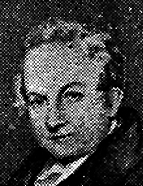

1809), and it is likely that he intended to compile them into a volume devoted exclusively to the History of Portugal. It should be emphasised from the outset that the series "History of Portugal" and "Memoranda Lusitanica" both emerged between November 1807 and December 1810, during the Peninsular War. Therefore, the decision to focus on the History of Portugal as the main topic for these two extensive series of articles was not merely coincidental. It is likely that the author aimed to draw the attention of his compatriots to the fate of a country that had established the oldest and most enduring political and military alliance in Europe with England, and alongside which the British army was successfully fighting the Napoleonic threat. According to Adamson's claims in the introductory text, the "History of Portugal" series was not an original work, but rather an adaptation of a French historiographical work from 1803, of which the authorship and original title were never disclosed. While acknowledging the undeniable value of the original work, Adamson cautions the reader regarding the panegyric nature of certain passages, which include allusions to the Gallic government and Napoleon Bonaparte. However, these references have been deliberately omitted by the translator, who presents a version free from the original, conveying a generally positive image of England and several of its monarchs and heads of state, including Henry VIII, Elizabeth I, Charles I, and Oliver Cromwell, whom he credits with transforming Britain into a great maritime power. The series titled "The History of Portugal" seems to be a mere epitome of the evolution of the Kingdom of Portugal, spanning from the foundation of the nation to the defeat at Alcacer Quibir. It covers the entire Middle Ages and the Renaissance, which are portrayed as the most glorious periods in the country's history. However, from a historiographical perspective, this collection of essays falls short of the standards typically found in similar texts. Instead of an exhaustive narrative detailing the deeds of the monarchs and heroes of the Burgundy Dynasty or the wise leadership of Renaissance princes like King John II and King Manuel I, as well as the voyages of Portuguese navigators, we encounter a philosophical reflection on the origins of a small nation on the periphery of Europe and its gradual transformation into a vast maritime empire, comparable to the great powers of antiquity such as Rome or Carthage. The collection of articles is notable for its lack of a chronologically organised narrative, a detailed list of facts, and, above all, references to historical figures and key events in the evolution of the country. Instead, we encounter an intriguing series of reflections on political theory, military strategy, and also on the history of medieval and modern Europe. Certain passages in "History of Portugal" resemble a genuine manual on the art of empire-building, highlighting the advantages of maritime expansion over territorial domination.
This work is financed by national funds through FCT - Foundation for Science and Technology, I.P, in the scope of the projects UIDB/04311/2020 and UIDP/04311/2020.
